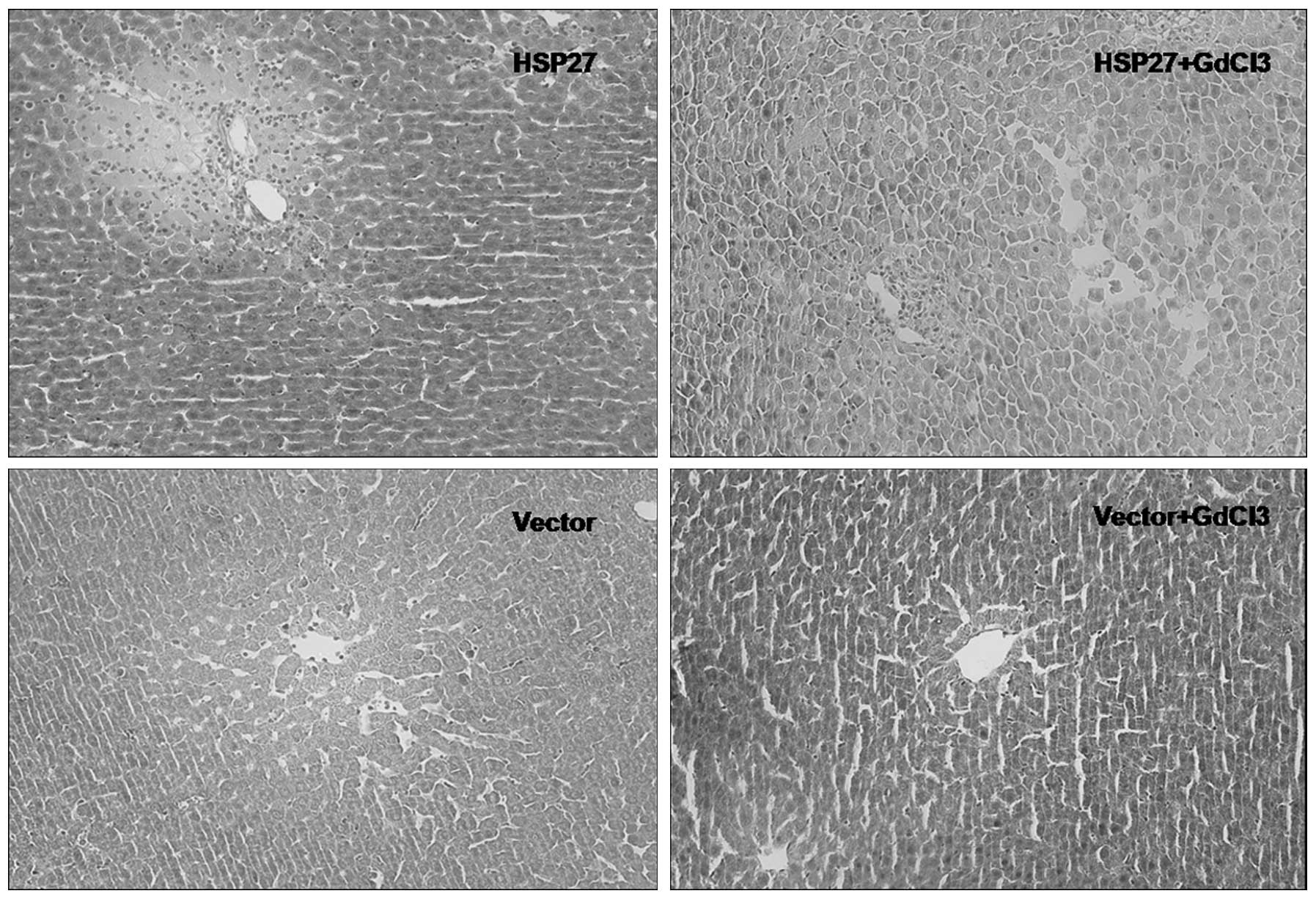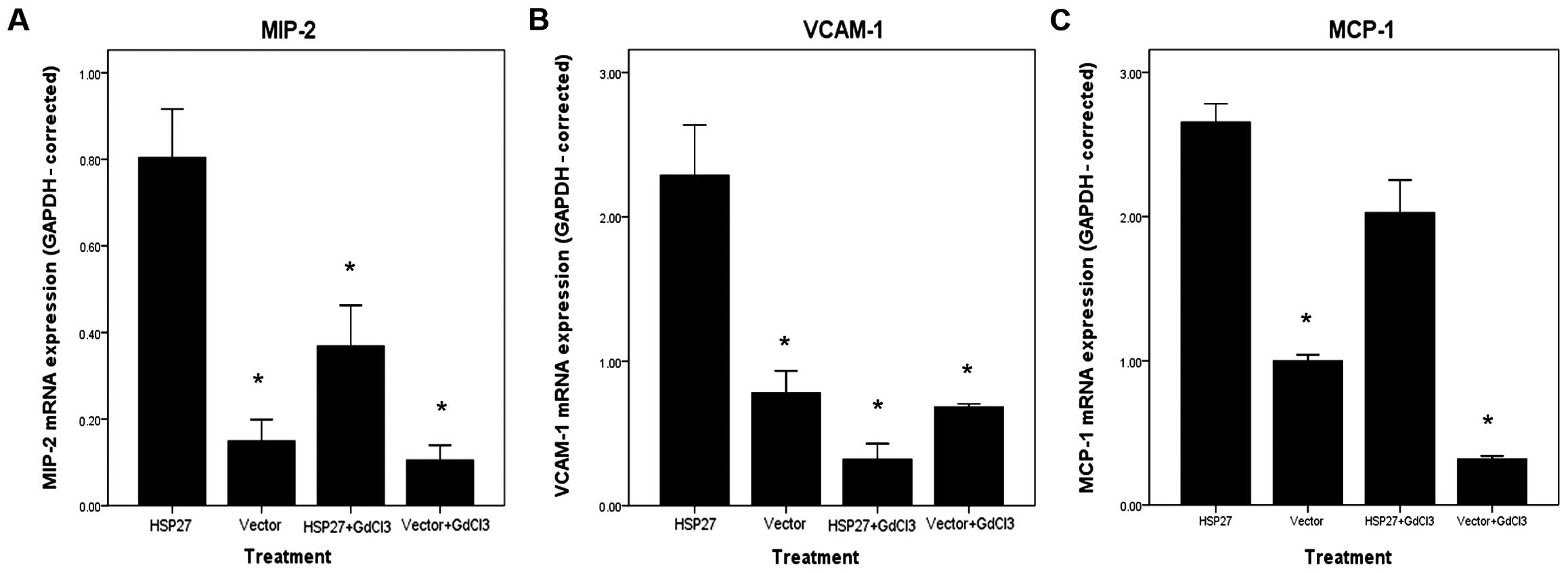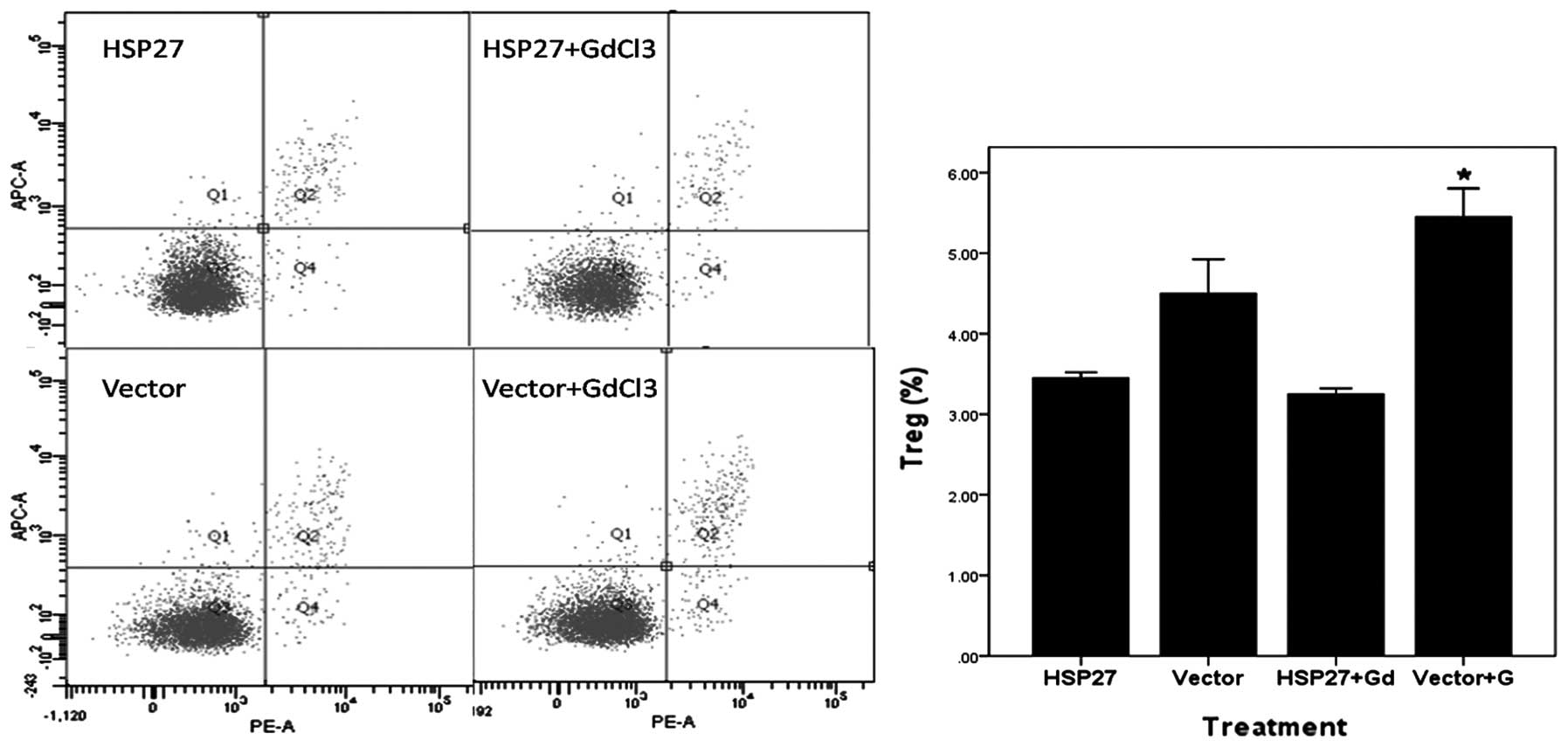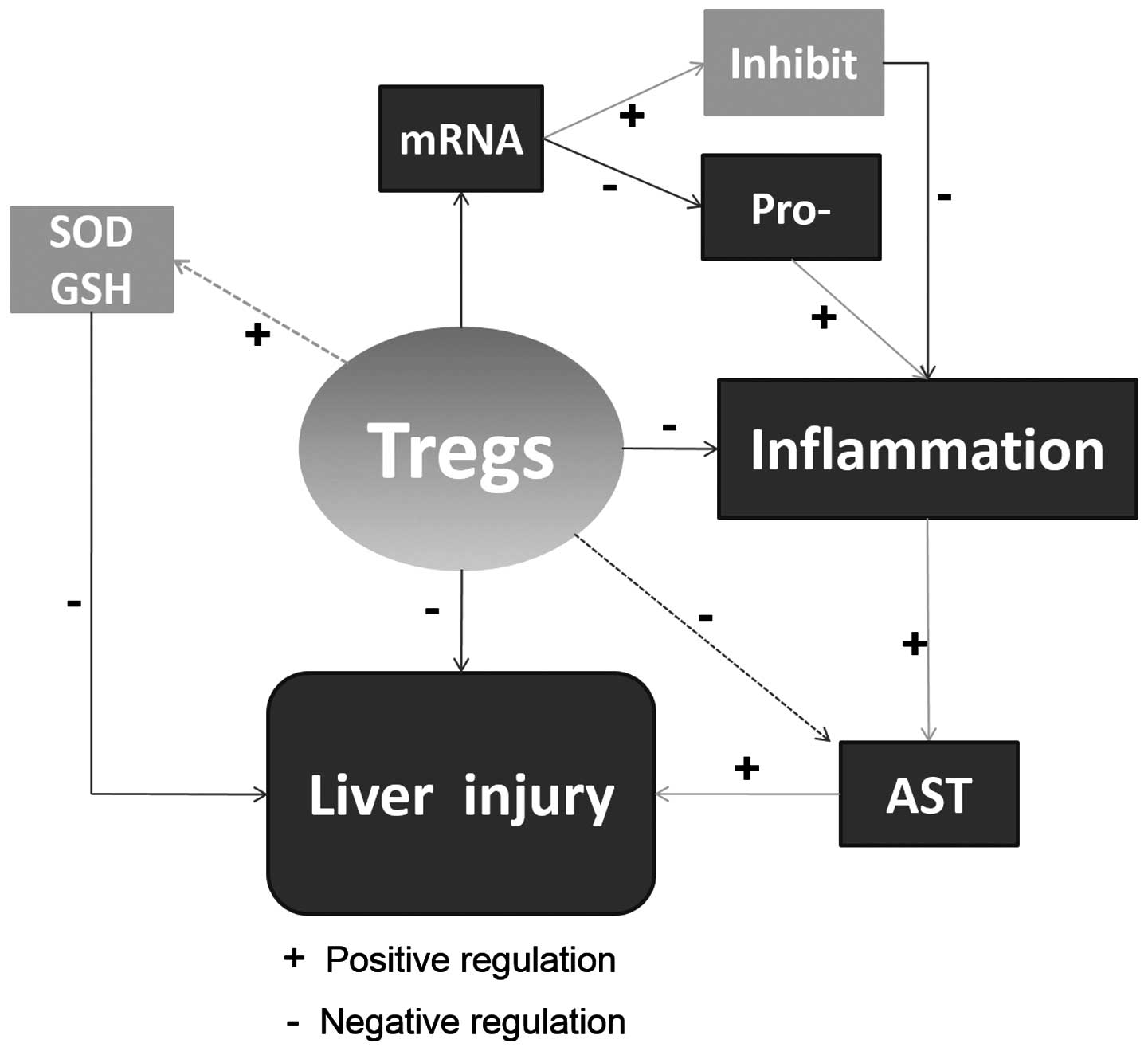|
1
|
Teoh NC and Farrell GC: Hepatic ischemia
reperfusion injury: pathogenic mechanisms and basis for
hepatoprotection. J Gastroenterol Hepatol. 18:891–902. 2003.
View Article : Google Scholar : PubMed/NCBI
|
|
2
|
Fondevila C, Busuttil RW and
Kupiec-Weglinski JW: Hepatic ischemia/reperfusion injury - a fresh
look. Exp Mol Pathol. 74:86–93. 2003. View Article : Google Scholar : PubMed/NCBI
|
|
3
|
Wobbes T, Bemelmans BL, Kuypers JH,
Beerthuizen GI and Theeuwes AG: Risk of postoperative septic
complications after abdominal surgical treatment in relation to
perioperative blood transfusion. Surg Gynecol Obstet. 171:59–62.
1990.
|
|
4
|
Daemen MA, de Vries B and Buurman WA:
Apoptosis and inflammation in renal reperfusion injury.
Transplantation. 73:1693–1700. 2002. View Article : Google Scholar : PubMed/NCBI
|
|
5
|
Serracino-Inglott F, Habib NA and Mathie
RT: Hepatic ischemia-reperfusion injury. Am J Surg. 181:160–166.
2001. View Article : Google Scholar : PubMed/NCBI
|
|
6
|
Pundik S, Xu K and Sundararajan S:
Reperfusion brain injury: focus on cellular bioenergetics.
Neurology. 79:S44–S51. 2012. View Article : Google Scholar : PubMed/NCBI
|
|
7
|
Song X, Zhang N, Xu H, Cao L and Zhang H:
Combined preconditioning and postconditioning provides synergistic
protection against liver ischemic reperfusion injury. Int J Biol
Sci. 8:707–718. 2012. View Article : Google Scholar
|
|
8
|
Gurusamy KS, Gonzalez HD and Davidson BR:
Current protective strategies in liver surgery. World J
Gastroenterol. 16:6098–6103. 2010. View Article : Google Scholar : PubMed/NCBI
|
|
9
|
Hori S, Nomura T and Sakaguchi S: Control
of regulatory T cell development by the transcription factor Foxp3.
Science. 299:1057–1061. 2003. View Article : Google Scholar : PubMed/NCBI
|
|
10
|
Lai LW, Yong KC and Lien YH: Pharmacologic
recruitment of regulatory T cells as a therapy for ischemic acute
kidney injury. Kidney Int. 81:983–992. 2012. View Article : Google Scholar : PubMed/NCBI
|
|
11
|
Rane MJ, Pan Y, Singh S, et al: Heat shock
protein 27 controls apoptosis by regulating Akt activation. J Biol
Chem. 278:27828–27835. 2003. View Article : Google Scholar : PubMed/NCBI
|
|
12
|
Nagata Y, Kudo M, Nagai T, et al: Heat
shock protein 27 expression is inversely correlated with atrophic
gastritis and intraepithelial neoplasia. Dig Dis Sci. 58:381–388.
2013. View Article : Google Scholar : PubMed/NCBI
|
|
13
|
Park SW, Chen SW, Kim M, D’Agati VD and
Lee HT: Human heat shock protein 27-overexpressing mice are
protected against acute kidney injury after hepatic ischemia and
reperfusion. Am J Physiol Renal Physiol. 297:F885–F894. 2009.
View Article : Google Scholar : PubMed/NCBI
|
|
14
|
Kim M, Park SW, Kim M, Chen SW, Gerthoffer
WT, D’Agati VD and Lee HT: Selective renal overexpression of human
heat shock protein 27 reduces renal ischemia-reperfusion injury in
mice. Am J Physiol Renal Physiol. 299:F347–F358. 2010. View Article : Google Scholar : PubMed/NCBI
|
|
15
|
Chen SW, Park SW, Kim M, Brown KM, D’Agati
VD and Lee HT: Human heat shock protein 27 overexpressing mice are
protected against hepatic ischemia and reperfusion injury.
Transplantation. 87:1478–1487. 2009. View Article : Google Scholar
|
|
16
|
Taniguchi M, Takeuchi T, Nakatsuka R,
Watanabe T and Sato K: Molecular process in acute liver injury and
regeneration induced by carbon tetrachloride. Life Sci.
75:1539–1549. 2004. View Article : Google Scholar : PubMed/NCBI
|
|
17
|
Williams AT and Burk RF: Carbon
tetrachloride hepatotoxicity: an example of free radical-mediated
injury. Semin Liver Dis. 10:279–284. 1990. View Article : Google Scholar : PubMed/NCBI
|
|
18
|
Sharma A, Upadhyay AK and Bhat MK:
Inhibition of Hsp27 and Hsp40 potentiates 5-fluorouracil and
carboplatin mediated cell killing in hepatoma cells. Cancer Biol
Ther. 8:2106–2113. 2009. View Article : Google Scholar : PubMed/NCBI
|
|
19
|
O’Neill S, Ross JA, Wigmore SJ and
Harrison EM: The role of heat shock protein 90 in modulating
ischemia-reperfusion injury in the kidney. Expert Opin Investig
Drugs. 21:1535–1548. 2012.PubMed/NCBI
|
|
20
|
Tiriveedhi V, Conzen KD, Liaw-Conlin J, et
al: The role of molecular chaperonins in warm ischemia and
reperfusion injury in the steatotic liver: a proteomic study. BMC
Biochem. 13:172012. View Article : Google Scholar : PubMed/NCBI
|
|
21
|
Montalvo-Jave EE, Escalante-Tattersfield
T, Ortega-Salgado JA, Pina E and Geller DA: Factors in the
pathophysiology of the liver ischemia-reperfusion injury. J Surg
Res. 147:153–159. 2008. View Article : Google Scholar : PubMed/NCBI
|
|
22
|
Weerachayaphorn J, Chuncharunee A,
Jariyawat S, et al: Protection of centrilobular necrosis by
Curcuma comosa Roxb. in carbon tetrachloride-induced mice
liver injury. J Ethnopharmacol. 129:254–260. 2010.PubMed/NCBI
|
|
23
|
Breitkopf K, Godoy P, Ciuclan L, Singer MV
and Dooley S: TGF-beta/Smad signaling in the injured liver. Z
Gastroenterol. 44:57–66. 2006. View Article : Google Scholar : PubMed/NCBI
|
|
24
|
Michalopoulos GK: Liver regeneration. J
Cell Physiol. 213:286–300. 2007. View Article : Google Scholar : PubMed/NCBI
|
|
25
|
Zwacka RM, Zhang Y, Halldorson J,
Schlossberg H, Dudus L and Engelhardt JF: CD4(+) T-lymphocytes
mediate ischemia/reperfusion-induced inflammatory responses in
mouse liver. J Clin Invest. 100:279–289. 1997.
|
|
26
|
Yokota N, Daniels F, Crosson J and Rabb H:
Protective effect of T cell depletion in murine renal
ischemia-reperfusion injury. Transplantation. 74:759–763. 2002.
View Article : Google Scholar : PubMed/NCBI
|
|
27
|
Taams LS, van Amelsfort JM, Tiemessen MM,
et al: Modulation of monocyte/macrophage function by human
CD4+CD25+ regulatory T cells. Hum Immunol. 66:222–230. 2005.
|
|
28
|
Jameel NM, Thirunavukkarasu C, Murase N,
et al: Constitutive release of powerful antioxidant-scavenging
activity by hepatic stellate cells: protection of hepatocytes from
ischemia/reperfusion injury. Liver Transpl. 16:1400–1409. 2010.
View Article : Google Scholar
|


















